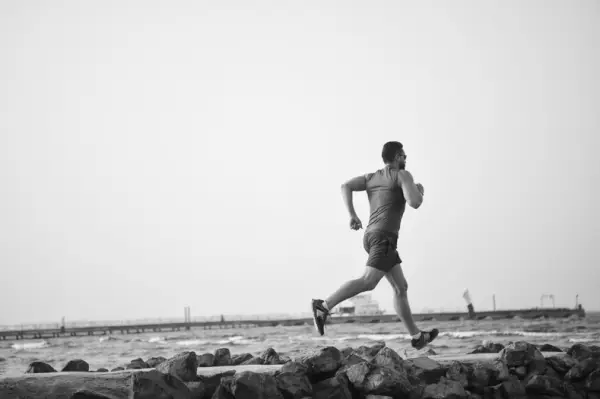Running Your Way to Addiction Recovery

Exercise has been correlated as having a strong impact on addiction in the current body of research. Endorphins, which are the body’s “feel-good” chemicals, are released with exercise like running or walking. The impact is a kind of resetting of the body’s natural defense mechanisms, which can help reduce the craving for drugs and alcohol. Though running cannot cure addiction, research suggests that running can be an effective tool to support long-term addiction recovery.
Addiction Recovery and Exercise
Sometimes exercise is all you need.
An article in The Guardian tells the story of the Skid Running Club, a group of early morning joggers made up of people in addiction recovery and local workers. This group meets daily and has replaced drug addiction to meth, heroin, alcohol or other drugs with exercise. Skid Row is a notorious part of downtown Los Angeles that is associated with rock bottom; the area holds more than 4,500 homeless people, for example. However, people living with a substance use disorder have banded together there to take on running as a part of their addiction recovery process.
Running strengthens the heart and lungs, but it also strengthens the mind. Some of the most positive aspects of addiction recovery occur during running, including:
- Increases in the brain’s endorphins, which make the runner feel more positive and upbeat
- Reduced depression and frustration
- Diminished cravings for unhealthy foods, drugs or alcohol
- A feeling of being more in control of one’s life and health
- A clearer head and more positive thoughts
- Greater self-esteem and confidence including renewed optimism about the future
Exercise benefits can even include repair of the brain damage associated with drug use. Running can serve as an important motivation to maintain health and sobriety while surrounding a person with a supportive network of people in recovery that are using exercise to improve their health.

Addiction Recovery Planning
While not everyone is physically mobile enough to take up running, there is enough evidence to support the use of running in addiction aftercare plans. Initially, incorporating vigorous exercise into treatment planning should be undertaken with the supervision of a physician or addiction support staff. It is important not to overdo it at first, or injury could cause an addiction recovery setback.
Take this new form of exercise with a grain of salt and be careful not to replace one addiction with another. Instead, moderate your addiction recovery with gradually increasing exercise as part of an overall treatment plan.
Too, addiction can cause heart, liver, or lung damage, which may need to be considered before hitting the road. An open and transparent discussion with your recovery team or doctor is the first step toward running straight into addiction recovery.
Addiction recovery can be achieved in all kinds of ways. Whether your journey is a physical or emotional one, exercise is just one way to begin the process of healing yourself. If you would like to try running, consult your doctor, and then get started.
Sustainable addiction recovery often begins with a stay in an accredited addiction treatment rehab facility. If you would like to take that first step today, please do not hesitate. Contact The Recovery Village Ridgefield right now to speak with an addiction professional about how to access the treatments that are right for you.

